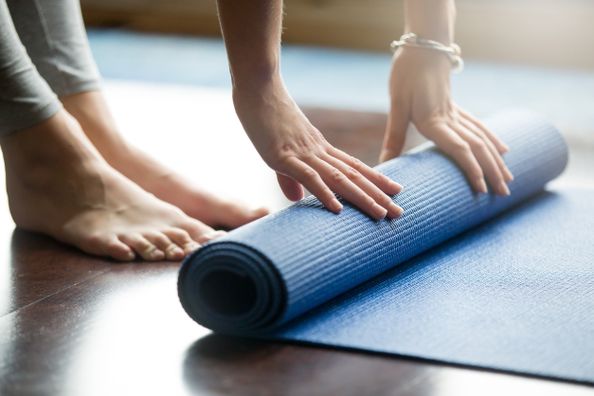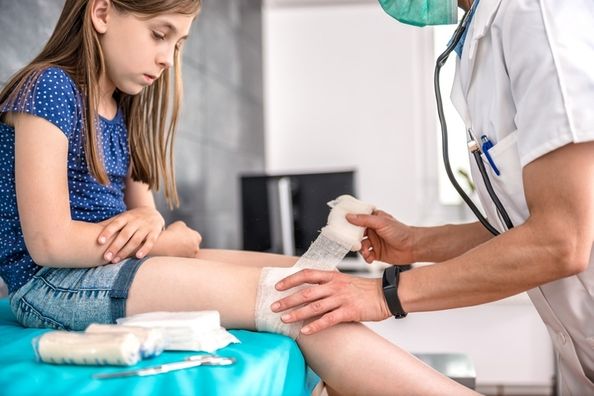As the temperature begins to rise and the days get longer, many of us find ourselves heading outdoors to enjoy our favorite activities. Warm weather has benefits, but extreme heat can pose many health and safety risks if precautions are not taken. Keep the following safety tips in mind so you and your family can continue to enjoy the warm weather ahead.
Be informed
Always know what to expect before heading outside during the summer. Check your local news or health department websites for extreme heat alerts. It’s also important to understand the effects heat can have on your body and to learn the signs of heat-related illnesses and how to treat them.
Also read: Keepin’ Cool With Sun Safety — How Heat Affects Your Heart and Body
Find a buddy
When the temperatures are high, team up with a friend or family member. If you were to lose consciousness or become confused, which are common heat-related illness symptoms, it’s important to have someone around to get you the care you need. If you have a loved one who is at high risk — infants or young children, people 65 and older, people who are overweight, people with conditions like heart disease or high blood pressure, or those who work outside — check on them at least twice a day.
Dress for the occasion
Dressing for the weather is a simple step you can take to help prevent heat-related illnesses. Choose lightweight, loose-fitting clothes made from breathable fabric. Wearing a hat that blocks the sun from your face is another great way to stay cool. To protect your eyes from the sun’s harmful rays, wear sunglasses designed to block out both UVA and UVB light.
Stay hydrated
Warmer temperatures cause you to sweat more, increasing your risk of dehydration. To combat dehydration, it is recommended that you hydrate by drinking eight ounces of water ever 15 to 20 minutes to reduce your risk of heat-related illnesses1. Stay away from drinks that can cause dehydration or are full of caffeine such as alcohol, energy drinks and sodas.
Wear sunscreen
Even on cloudy days, it is important to remember to wear sunscreen. Sunscreen, specifically SPF 30 or higher, can help protect your skin from the sun’s UV rays and prevent the development of skin cancer3. It is recommended that you apply sunscreen every two hours to avoid sunburns. If you are swimming or exercising outside in the heat, you may need to reapply your sunscreen more often.
Cool off indoors
When it’s hot outside, it may be best to head indoors. Stay cool in an air-conditioned place as much as possible. If your home doesn’t have air conditioning, head to the library or your favorite restaurant. Even just a few hours spent in a cool, air-conditioned space can help your body stay cooler when you head back into the heat.
If you are looking for additional resources for finding a cool place to stay, visit Keep Cool Illinois to find a cooling center near you.
Schedule outdoor activities accordingly
As the temperature rises, many people move their workouts and hobbies outside. Although being outside has many benefits, such as boosting your endorphins and providing a variety of activities to participate in, it can also pose health threats. Heat-related illnesses can be avoided by spending your active time outside during the cooler parts of the day, such as in the early morning or late evening. If you are new to being out or exercising in the heat, it is important that you take precautions such as starting off slow and working your way up to longer and more strenuous times outside. To help avoid heat-related illnesses, it is recommended you take frequent breaks to rest in the shade, preferably in air conditioning. Utilize these breaks to hydrate, cool down your body and reapply sunscreen.
Address your allergies
For some of us, the start of spring also means the start of allergy season. Although there are many over-the-counter (OTC) options to take care of your seasonal symptoms, it is always a good idea to ask a healthcare professional before taking any new medications for your runny nose, itchy eyes, or irritated skin. Make sure to read the safety label for dosing and ask your doctor if there are any alternatives to consider.
Apply insect repellent
If you will be spending time outside, specifically at night or in a wooded area, it is important that you apply insect repellent liberally to avoid bug bites. Many insect repellents will help prevent mosquito, tick and other biting insect bites4. Family members who are under 10 years old should have an adult apply their insect repellent to prevent accidental oral consumption. For the younger family members who are two and under, insect repellent should be avoided.
Remember safety equipment
No matter the activity, be prepared with any safety equipment needed to stay safe.
Whether you are a pro biker or a younger child using training wheels, everyone who rides a bike should wear knee pads, elbow pads, and a properly fitting helmet to avoid head injuries, a leading cause of head trauma in children.
Pools and water-related incidents are common safety hazards for many families. Ensure every family member has a proper fitting life vest if they cannot independently swim or if you are in an open body of water such as on a boat.
No matter what the weather, our providers are always here for you. Schedule an appointment online or walk into one of our Immediate Care Centers if you or your family experience any heat-related illness symptoms.
Health Topics:







